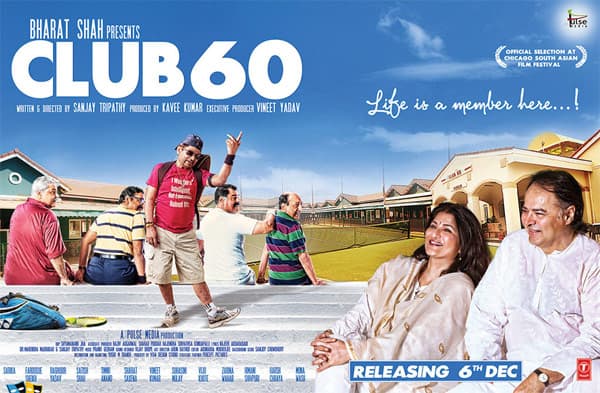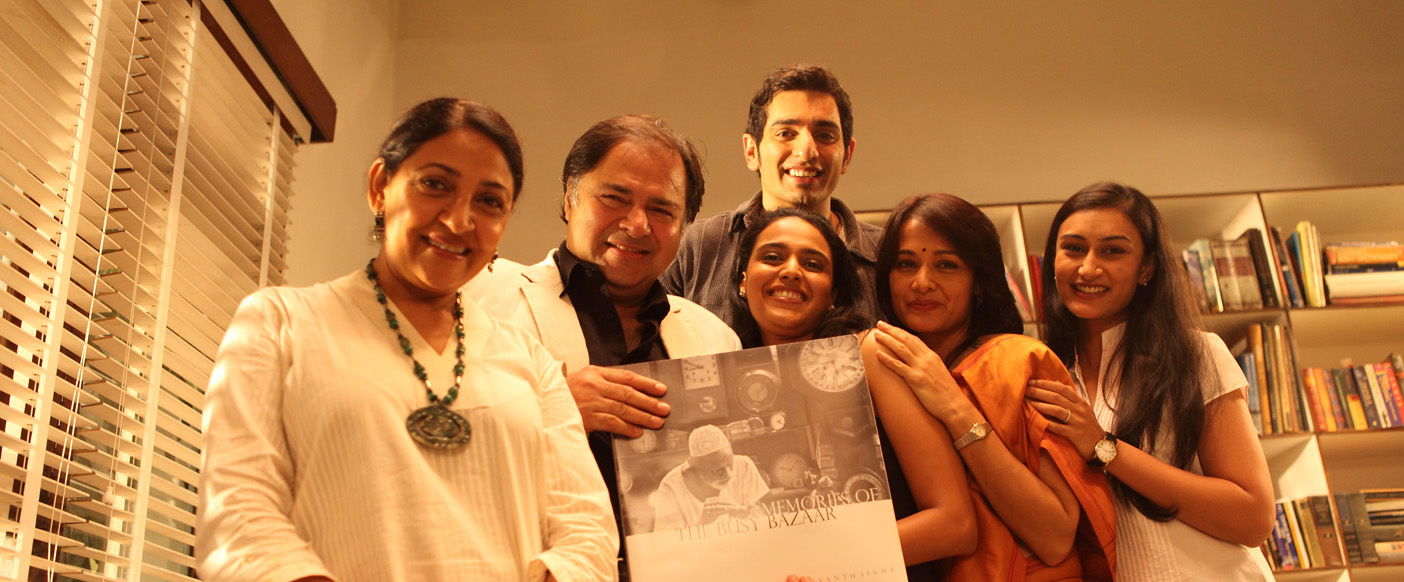Farooq Sheikh’s last film, Youngistaan, releases this Friday. Appropriately for a man who always embraced youth, the title itself lays claim to the younger generation. Even in his older character roles of recent years, Sheikh spoke to the struggles of the young, the spirit of play and joy. Sheikh has always been at his best when questioning wisdom of the old.
In his very first film, Sheikh dealt with this quandary. His character is in many ways secondary, but ultimately it is his argument for youth and the future which the film supports. Garam Hawa (1974) is one of the few films in Indian history to deal directly with the issues of partition (Khushwant Singh, who died earlier this week, wrote one of the few others, Train to Pakistan (1998)). It’s focus is purportedly on the older generation, on Salim, the brother who chooses to stay in India. In the younger generation, the most important characters are the nephew who goes to Pakistan and the girl he loves. As their tragic love story unfolds, they unable to overcome their family and the state to be together, the girl is then rejected by her second choice suitor and finally commits suicide. And yet, there is also Farooq Sheikh’s Sikander, traveling the outskirts of the plot, never falling in love, never searching for meaning, always clear on his purpose. Sikander wants to save this new India, to live in the here and now and fight for the future. In the end, it is his vision that wins out as his father Salim is convinced to join him in protest and, therefore, in hope for a better life.

In Sheikh’s recent films, he has been playing the older generation convinced to follow the youth. His most recent films, Listen…Amaya (2013), Club 60 (2013), and Yeh Jewaani Hai Deewani (2013) all struggle with how the younger generation should act and interact with the older. In Listen…Amaya, he is reunited with his frequent co-star Deepti Naval in a middle-aged love story. Significantly, however, they are not the title character. The title is given to Deepti Naval’s character’s daughter. But it is phrased as a command, she is being told to “Listen.” Listen to what?–to her mother, to her mentor, to the older and wiser people around her. The story is about her, about the youth, but it is also a command for the youth to continue to listen to and work with their elders.
Club 60, as the title implies, is about a community of those around 60 years of age. However, this is not a group that has smoothly and easily entered into Vanaprastha stage. They dress young, they talk young, they refuse to leave the world either literally or metaphorically. Sheikh’s character, when he first meets them, is trapped in the past, unable to consider that their way of life may be anything more than a fruitless fight against time. However, through the course of the film, he comes to embrace their petty rebellion against the structures of age and find in it a freedom and purity. In a way, his journey parallels that of Salim in Garam Hawa. He begins trapped in a tragic loss and ends embracing rebellion and its hope for the future.

And then there is Yeh Jawaani Hai Deewani, one of the most successful films of 2013, in which Sheikh plays a small but significant part. The title itself calls out to youth. Yeh Jawaani is partly a romance, but mostly a Bildungsroman, the coming of age story of Bunny (Ranbir Kapoor) and, to a lesser degree, Naina (Deepika Padukone). Farooq Sheikh’s character, in two short scenes, defines this struggle.
Bunny is the kind of character Farooq played in Katha (1983), a feckless youth enjoying himself and not worrying about tomorrow or the devastation he leaves behind him. It may be hard to see his growth, because Bunny is a charming character who is always in control and confident of his place in the world. However, Sheikh’s two scenes at the beginning show that Bunny is still flawed and fearful, when he is forced to be in a place he does not choose. Sheikh, as Bunny’s father, simply asks him why he was late to come home, requests that he respect his stepmother, and offers him food. This causes Bunny to react with all the grace of a three year old throwing a tantrum, finally forcing him to flee to his bedroom. Sheikh’s character follows him and, in this second scene, expresses simple concern and love for his son, which Bunny is completely incapable of reciprocating or processing.
Sheikh’s character disappears after this, but his gentle understanding and concern cast a long shadow of the rest of the film. Bunny’s inability to relate to his love and support presage the inevitable incomplete ending of his romance with the gentle Naina. His desire to run away from the complicated emotions and situation of his father and stepmother foreshadow his failure to support his troubled friends. Bunny only truly grows up when he returns home and confronts the death of his father, finally able to take responsibility for people and relationships, not just move through life.
Sheikh’s career tells India to embrace youthful rebellion against the status quo, to take responsibility for change, to never retreat into the past. Now that he is here no more, we should honor him by appreciating his contributions to film, but more importantly, striving to bring film forward, to look to the future and ask “how could things be better?”
Margaret Redlich is a Masters student in Media and Cinema Studies at DePaul University with a focus on Indian film. She has been published on the website Racialicious.com and is the Midwest Popular Culture Association’s Area Chair for Indian film.






